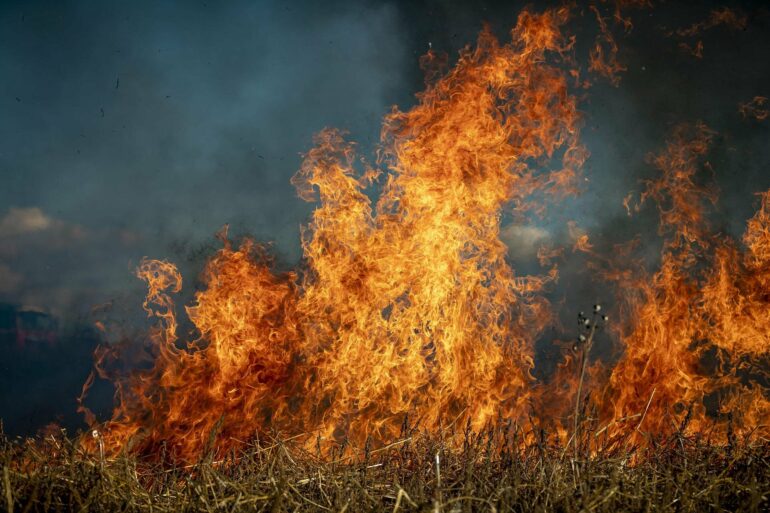The increasing number of extreme bushfires around the world, as currently seen in Canada and Greece and previously during the Australian Black Summer, could exacerbate climate change and further disrupt Earth’s systems, leading to devastating impacts across the globe.
In an article published in Science, researchers from University of New South Wales Canberra and The University of Tasmania have highlighted the global impacts of the Black Summer fires and detailed lessons learned, while emphasizing the urgent need for the global community to better respond to extreme fires.
The world is experiencing larger and more destructive fires; the area burned by the Black Summer bushfires was 800 percent larger than the average area burned in fires between 1988 and 2001, and the fires released the equivalent of 80 percent of Australia’s typical annual greenhouse gas emissions.
UNSW Canberra Professor of Bushfire Dynamics Jason Sharples said fire thunderstorms, which were prevalent across the 2019–20 fire season, have the potential to significantly disrupt Earth systems, such as the climate.
“During the Black Summer we witnessed 44 fire thunderstorms, also called pyrocumulonimbus, where extreme fires alter the surrounding atmosphere,” Professor Sharples said.
“It shattered all previous records for a single fire season in Australia.
“While these enormous fires had devastating immediate impacts, people were killed, homes were destroyed and innumerable wildlife and habitats were lost, they also had a significant effect on systems that influence global climate.
“The unprecedented amount of smoke and greenhouse gases released by the fires led to such immense stratospheric pollution that it damaged the ozone layer, caused a drop in sea temperatures and produced algal blooms in the Southern Ocean that were larger in size than Australia.
“These impacts might be less obvious than the immediate destruction, but they pose a serious risk to the health of ecosystems across the planet.
“It is crucial that the global community takes steps to limit the effects of climate change and improve fire management techniques to prevent these extreme fires as much as possible.
“If not, we will be locked in a vicious cycle of climate change leading to larger fires and then those larger fires amplifying the effects of climate change.”
University of Tasmania Professor of Pyrogeography and Fire Science David Bowman said Australia, and other fire-prone countries, needed to re-think fire management practices and adopt a diversity of approaches to meet the challenge.
“For a long time, we have relied primarily on prescribed burning to reduce the fuel load for bushfires, but this is less effective in hotter and drier conditions, like those we will experience more frequently due to climate change,” Professor Bowman said.
“Add to that the fact we have an increasingly smaller window to complete prescribed burns and it’s clear we need a re-think.
“Following the Black Summer, policy discussions have focused on increasing firefighter capability and capacity, but with the extreme fires we expect in future no firefighting service could adequately respond to those. This means we need to get better at management and prevention.
“In addition to prescribed burns, we must adopt the cultural burning practices used for centuries by First Nations Australians and determine to what extent they can be implemented at scale across the country.
“We should also consider what benefit marsupials and non-native herbivores can have on reducing the understory vegetation across different parts of Australia. Thinning bushland surrounding urban areas and establishing ‘green fire breaks’ with irrigated, low flammable vegetation may also help to prevent the spread of fires.
“The fires we expect to face in future are going to be bigger and more dangerous than those we’ve experienced in the past, so we can’t just keep doing the same things to combat them.”
More information:
David M. J. S. Bowman et al, Taming the flame, from local to global extreme wildfires, Science (2023). DOI: 10.1126/science.adi8066
Provided by
University of New South Wales Canberra
Citation:
Extreme Australian bushfires pose serious threat to global climate, scientists warn (2023, August 14)
